When we decided to revive our yearend forecast report this year, we identified five areas where we thought new ideas could come from: Application of Technology, Design Thinking, Funding and Supporting Initiatives, Sustainability and Social Cohesion, and the Revival of Culture and the Arts.
Technology has precipitated new ventures and accelerated existing ones, from finding ways to stop the spread of the coronavirus to preventing the further deterioration of business operations.
Systems have been restored for the most part with the help of Design Thinking, and as we resume cross-border travel or report to the office more often, we will find the profound need for design at many levels.
The survival of new initiatives requires Funding and Support. I find Venture Capital to be the bellwether of where things will be headed, its decisions the embodiment of collective trust and confidence.
Trapped in smaller worlds for nearly two years, mostly in a straitjacket of fear and caution, we took a closer look at our lives, and realigned our values and priorities with those of others in a quest for sustainability and cohesion.
Finally, to make sense of what goes on around us in a more exalted way than news reports and sweetened factoids, we need art. We need to contemplate it and even create it because it what binds us together.
So, we invited a group of people to help us read into the developing trends. We looked at organizations for commitment to sustainability, inclusivity, creation of opportunities, originality and social impact.
And here they are—the top of the lot, business captains and academics, visionaries and mavericks, scientists who can decipher clues in a petri dish and social luminaries who can read rooms like nobody else—yes, people commonly known today as thought leaders. And here is what they foresee.
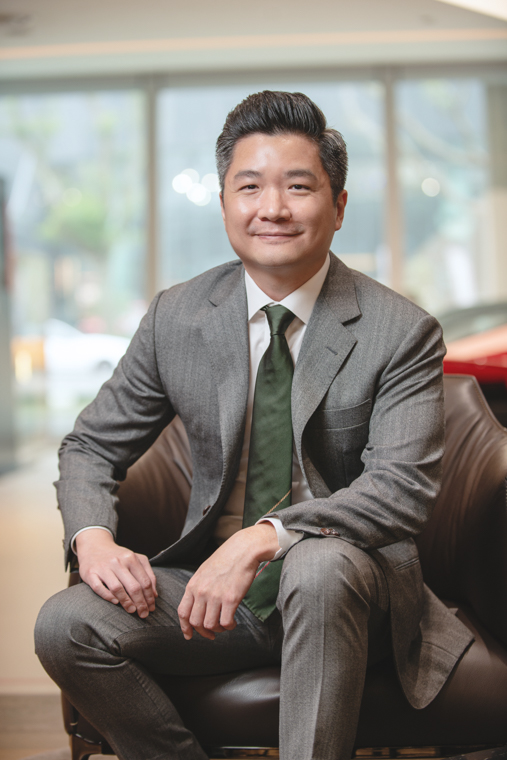 Alvin Tan, Deputy Chief Executive (Policy & Community), National Heritage Board
Alvin Tan, Deputy Chief Executive (Policy & Community), National Heritage Board
Alvin Tan, Deputy Chief Executive (Policy & Community), National Heritage Board
During the pandemic, the museum sector in Singapore was confronted with closures, plummeting visitorship, cancellation of exhibitions and programs, and unprecedented loss of revenue. In response, our museums pivoted to the digital realm and experimented with their offerings in order to stay connected with their audiences and reach out to new audiences.
On Museums’ New Role
As museums re-emerge and find their way in a COVID-19 endemic world, they have to stay nimble and reinvent themselves. Many of them have accelerated their transition into the digital space and ventured into offering ‘phygital’ audience experiences. They have also curated ‘hyper-local’ shows focused on local content, and explored the adoption of contactless technology to overcome the public’s ‘safer-at-home’ mentality. In this new operating environment, museums’ role as cultural first-respondents becomes more prominent. They will be increasingly called upon to use their collections and content to improve the well-being of society by alleviating the challenges of confinement, and reducing social isolation. Museums will also play a larger role as patrons of the arts by providing a lifeline for arts and cultural practitioners, and as ‘cheerleaders’ for their communities by offering content with uplifting messages.
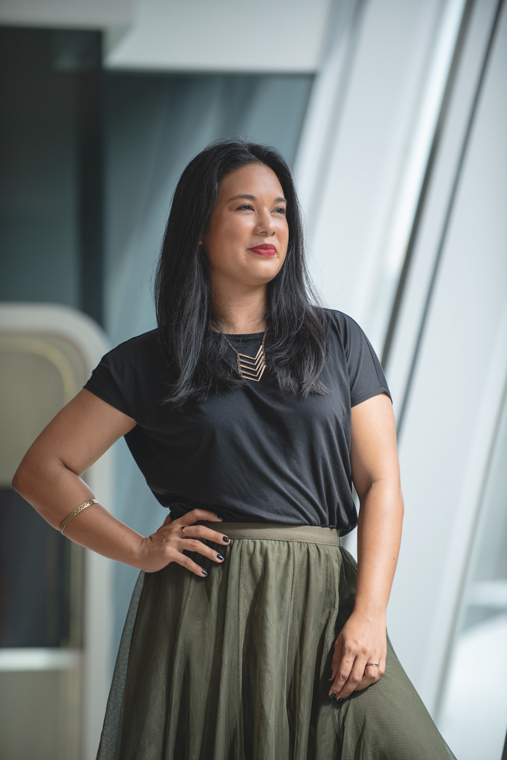 Amra Naidoo, Co-Founder & General Partner, Accelerating Asia
Amra Naidoo, Co-Founder & General Partner, Accelerating Asia
Amra Naidoo, Co-Founder & General Partner, Accelerating Asia
One of the major challenges we faced was the disruption to our portfolio companies – some had to halt operations and pivot. Others in eCommerce, healthtech, and logistics experienced exponential growth which comes with its own challenges. So, we focused on portfolio management, jumping on calls, providing advice and support on pivots, cash-flow management and more.
On Investor Focus
Fintech, especially BNPL, had significant investor interest in 2020, which is likely to continue into 2021 given the market opportunity that exists in Southeast Asia where 73 per cent of the population is underbanked. We are also likely to see late-stage funding into the digitization of traditional industries—eCommerce, edutech, logistics, healthtech, agritech—that were accelerated by the pandemic. It is this potential for follow-on and later stage capital combined with market conditions that creates favorable conditions for early-stage and pre-Series A investing. We’ve invested across all these verticals at the early stage because we believe there is opportunity for investment returns to be had. We have been focused on investing in startups where the potential for scalable environmental and social impact is embedded into the business model.
Bernadette Cho, Partner, Entrepreneur First
An unexpected pivot was to run our entire operations remotely, starting from canceling our Singapore Investor Day in March 2020. Despite this net-new way of working, founders and investors across the ecosystem rallied and Entrepreneur First’s global portfolio raised around 80 per cent more in H1 2020, as compared to 2019.
On Innovation
The venture opportunity begins with outlier talent. The past two years have challenged entrepreneurs to build differently and have catalyzed a paradigm shift in the way founders operate and evaluate. Startups today are more location-agnostic and change-resilient, as they have captured new markets and opportunities from the confines of their own homes. The unintuitive turned out possible: founders created net-new materials on their rooftops when they were locked out from lab space; they co-founded across continents to ensure the best possible pairings and continued to drive funding momentum leading to several of our largest seed rounds to date. Throughout this, our founders have shown us that they will find a way or make a way, regardless of novel headwinds.
 Caecilia Chu, Co-Founder & CEO, YouTrip
Caecilia Chu, Co-Founder & CEO, YouTrip
Caecilia Chu, Co-Founder & CEO, YouTrip
The uncertainty in the past two years have underscored the importance of building a pandemic-resilient company. To ensure YouTrip remains relevant amidst an ever-changing environment, we are laser-focused on establishing multiple growth drivers across travel, ecommerce and corporate expense management that continually serve diverse multi-currency payment needs.
On New Technologies
Advances in cloud computing will further help companies to run their organizations more efficiently, improve data management, and allow them to serve their customers better. Likewise, the breakthroughs in blockchain technology is another exciting trend to keep a close watch on. Innovations in this space can pose limitless benefits for SMEs such as eliminating fraud, lowering operational risks and facilitating cheaper, faster and safer payments. New technologies are emerging at breakneck speed, and I’m excited to see how this will be adapted for the SME space, and further transform the way organizations work.
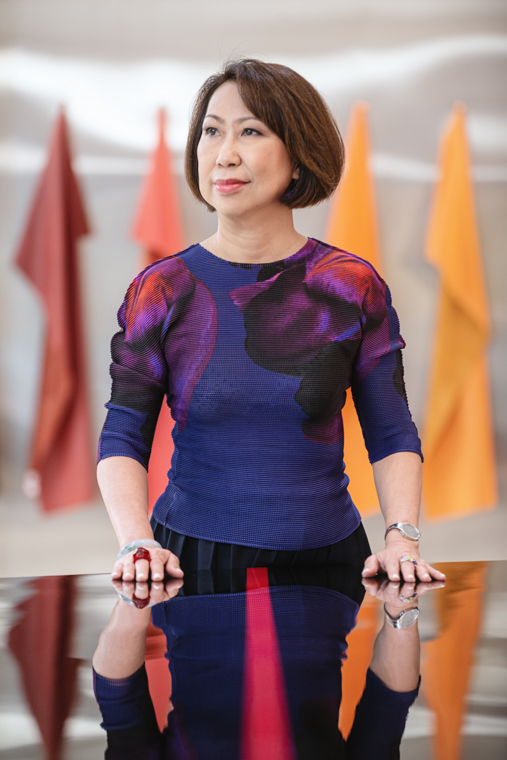 Chong Siak Ching, CEO, National Gallery Singapore
Chong Siak Ching, CEO, National Gallery Singapore
Chong Siak Ching, CEO, National Gallery Singapore
Not having visitors come to the museum is a huge setback. So, we decided to bring the art to them instead. We went digital and launched #GalleryAnywhere, offering a variety of online exhibitions, podcasts, films, games, for our audiences to enjoy, anywhere and anytime.
On Audience Engagement
Arts and cultural institutions will leverage even more on technology such as AR, ER or AI to enhance visitor experience, provide inclusive access, and broaden audience reach from local to global. Through QR codes and AR, we created mini-museums that we call The People’s Gallery in the void decks of 27 HDB blocks across Singapore, bringing art to their doorsteps. In this year’s ‘phygital’ edition of Gallery Children’s Biennale, the on-site and digital artworks are connecting children across the world. The pandemic has highlighted the gaps and stresses in society. Art and culture can help to comfort, inspire and build stronger social bonds. We will see more partnerships between the arts, healthcare and social sectors together with civic society, to leverage the power of art and culture to uplift the senses and mental well-being of our people, and bring about a safe, caring and cohesive nation.
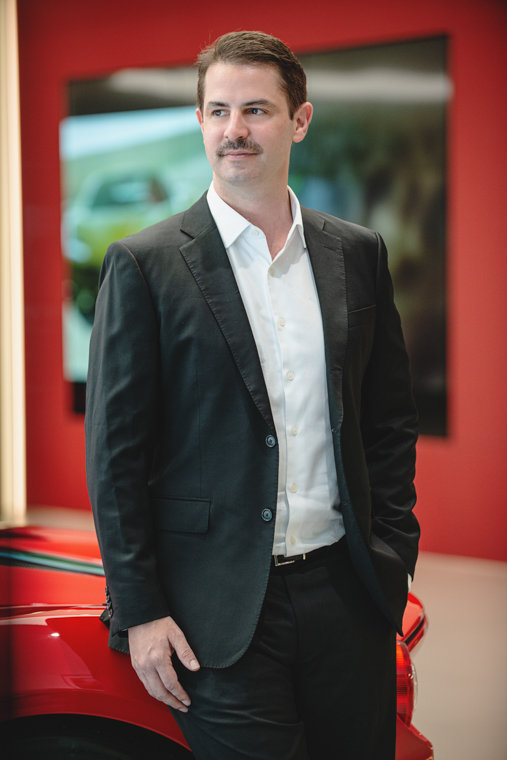 Doug Terry, VP, Client Services, Cielo
Doug Terry, VP, Client Services, Cielo
Doug Terry, VP, Client Services, Cielo
The market uncertainty from the pandemic led to challenges in suitably conveying employee value proposition. Applications from suitable candidates decreased, and engagement of passive talent became harder. It was important to revise our strategy to provide assurance to employees and potential hires alike to maintain business continuity.
On New HR Tech
HR technology will continue to evolve with talent acquisition in mind. Smart websites, next-generation CRM, and conversational AI come to mind. They allow candidates to access information on-demand, manage applications, and even receive process updates. Through a wide range of web-based assets like CMS and CRM, digital engagement is now valued more than ever. This offers employers and talent acquisition professionals a chance to tailor content aimed at candidates and potential employees. That we can now serve content over multiple channels ranging from WhatsApp to WeChat to email means organizations can constantly evaluate the effectiveness of their messaging and adjust campaigns accordingly. This translates into higher rates of converting inspired candidates into employees. The seamless integration of today’s technology into our workflow allows for a much smoother hiring process, thus allowing for long-term sustainability.
Fanny Perdu, Public Relations Coordinator, WhatIF Foods
Some called us crazy for launching our brand in the middle of a pandemic. As it turns out, it’s feasible. Sourcing had been a headache: making sure that your employees are safe and taking care of their health, that items arrive on time, that you are able to run against time. With a wonderful and agile team behind us, the tasks never seemed to be too much to handle.
On How We Eat
The pandemic has allowed us to reflect on our life, philosophy and lifestyle. It became clear that more of us are disillusioned with our food environment: one that lacks nutrients, degrades our land and disempowers farming communities. The idea of regeneration comes to mind as a guiding principle for change in 2022. It is time to adopt a regenerative lifestyle, which replenishes ourselves, restores our land, and reconnects with our community.
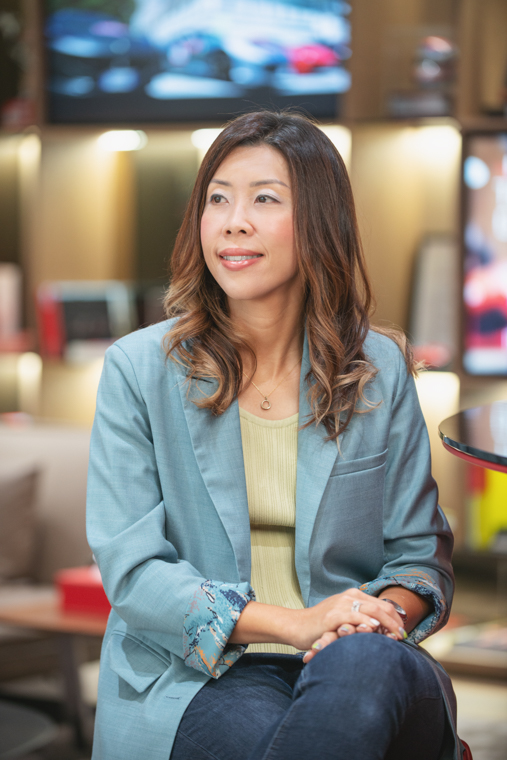 Geraldine Kor, Country Managing Director, Telstra Singapore
Geraldine Kor, Country Managing Director, Telstra Singapore
Geraldine Kor, Country Managing Director, Telstra Singapore
Staying connected and helping teams remain engaged became more important than ever to help keep businesses online and innovation alive. The shift to remote work was challenging at first, but carving out time for team interactions, and planning regular virtual lunch and learn sessions has definitely helped to keep us going among other things.
On Digitalization
In a world where digitalization is a must-have, organizations are handling larger volumes of data than ever before. The greater data load requires organizations to tap into 5G to provide the network latency required to keep services online. Digitalization has been a lifeline for critical industries such as financial services and healthcare, helping to keep essential daily transactions going and optimizing manpower and diagnostic capabilities in healthcare institutions during the pandemic. 5G is continuing to evolve, and when paired with other emerging technologies such as AI, big data, and machine learning, it will unlock new capabilities that will transform customer experiences across industries. As digitalization continues to accelerate, 5G will become the foundation for augmented and virtual reality applications, IoT, industrial automation, smarter cities, faster set up of remote sites, and the future of digital organisations.
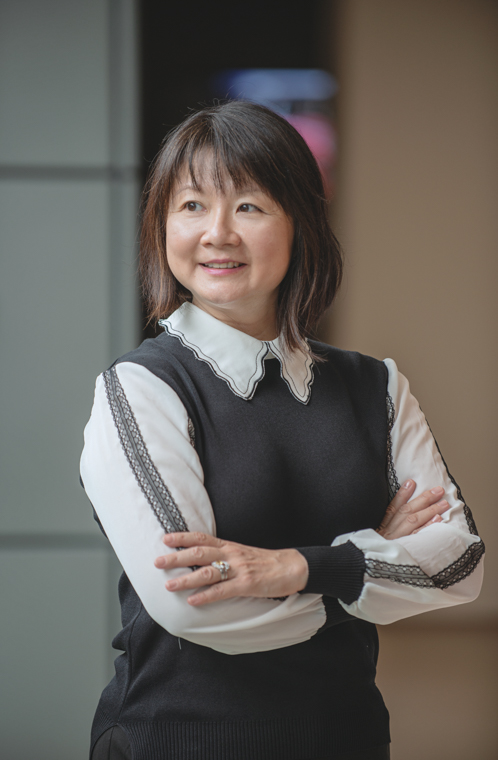 Grace Ho, President, SWAT Mobility Pte Ltd
Grace Ho, President, SWAT Mobility Pte Ltd
Grace Ho, President, SWAT Mobility Pte Ltd
We provide technology-led transport services for companies. With mandatory work-from-home during the pandemic, employee ridership declined sharply, impacting revenue. We ventured overseas and partnered with large companies to provide transport for medical workers in Southeast Asia. We also adopted our technology for logistics to drive new revenue streams.
On Transport Technology
Deployment of electric vehicles creates new opportunities for technology to be applied in optimizing travel routes, data collection and managing the life span of the vehicle asset. In countries with rural populations, on-demand technology is gaining traction in public transport services where passengers ‘call’ for the bus services when they need a ride. The pandemic has accelerated interest of on-demand technology in smart city projects. The concept of township and precinct will come to fruition, with on-demand transport services, autonomous vehicles and multimodal mobility solutions all forming part of the ecosystem to enable people to move around safely and consume services in new ways. Drones, robot shuttles, autonomous vehicles, electric vehicles will be common utility assets in our daily lives.
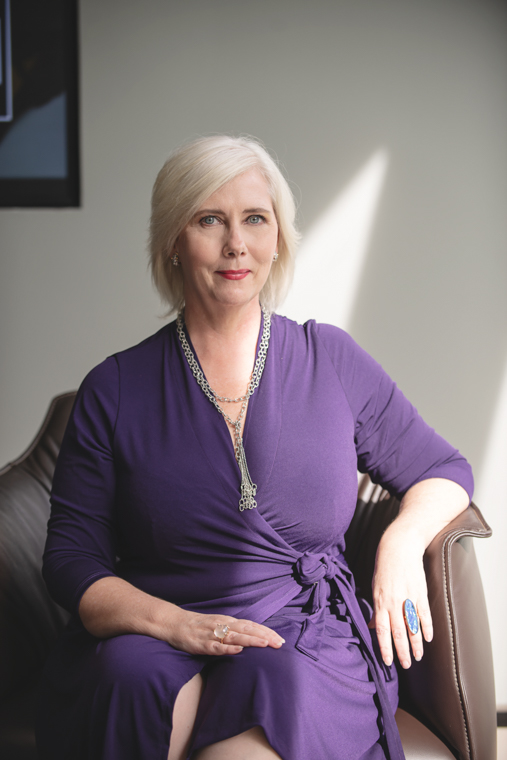 Joanne Flinn, Chair Sustainability Leadership, EGN
Joanne Flinn, Chair Sustainability Leadership, EGN
Joanne Flinn, Chair Sustainability Leadership, EGN
It felt like someone had hit Ctrl+Alt+Del but the computer of life was not rebooting. Sustainability took on a new dimension. It moved beyond cash and climate to include care for each other. Realizing our degree of interdependence, we took the lead in creating and running more peer-support networks.
On Sustainability
The new frontier of sustainability will be in business models and finance. Customers, employees, and investors will ask for proof of action, accelerating the value of sustainable, purposeful business. Greenwashing will become unsustainable. New opportunities for products, services, and business partnerships that involve less carbon, considerate of people, and clear in their provenance will increase revenues and find access to the EU and USA markets easier. Directors and C-suite with vision will view increased compliance, regulatory and documentation diligence as a mindset shift from doom to more dollars. Social media will disproportionately magnify corporate successes and failures, regardless of their true financial impact. In eCommerce, competing online retailers will collaborate to eliminate free returns for environmental cost reasons. And at an individual level, people will walk 250m to their nearest burger joint rather than ordering their super-sized Coke online. As influencers and change-makers, we will say 2022 is the year business took the lead for sustainable profit, purpose, people, and planet.
Shot on location at Ferrari Singapore (Ital Auto Pte Lted)
30 Leng Kee Road, Singapore, 159100






 Alvin Tan, Deputy Chief Executive (Policy & Community), National Heritage Board
Alvin Tan, Deputy Chief Executive (Policy & Community), National Heritage Board
 Amra Naidoo, Co-Founder & General Partner, Accelerating Asia
Amra Naidoo, Co-Founder & General Partner, Accelerating Asia
 Caecilia Chu, Co-Founder & CEO, YouTrip
Caecilia Chu, Co-Founder & CEO, YouTrip
 Chong Siak Ching, CEO, National Gallery Singapore
Chong Siak Ching, CEO, National Gallery Singapore
 Doug Terry, VP, Client Services, Cielo
Doug Terry, VP, Client Services, Cielo
 Geraldine Kor, Country Managing Director, Telstra Singapore
Geraldine Kor, Country Managing Director, Telstra Singapore
 Grace Ho, President, SWAT Mobility Pte Ltd
Grace Ho, President, SWAT Mobility Pte Ltd
 Joanne Flinn, Chair Sustainability Leadership, EGN
Joanne Flinn, Chair Sustainability Leadership, EGN
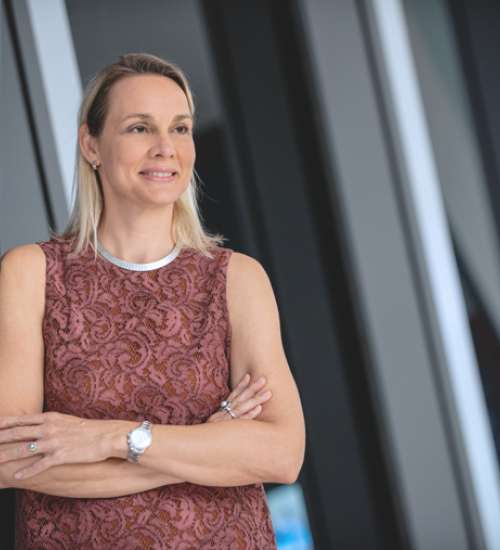
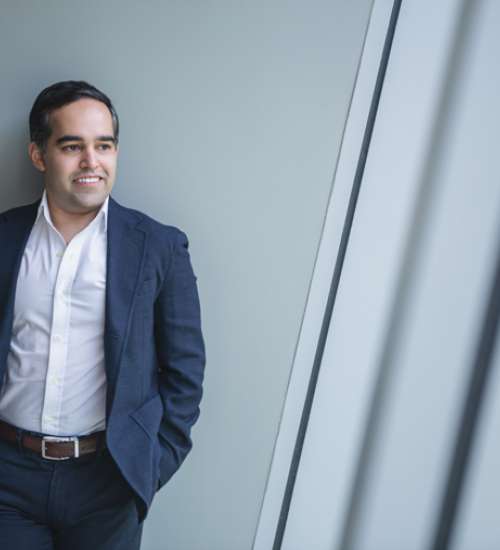


 Back
Back
